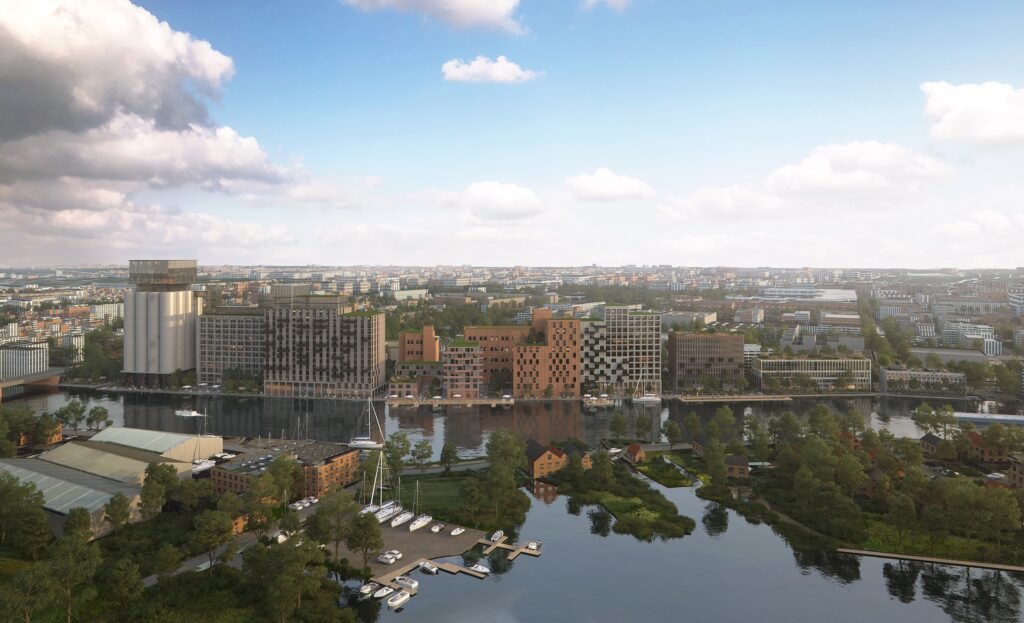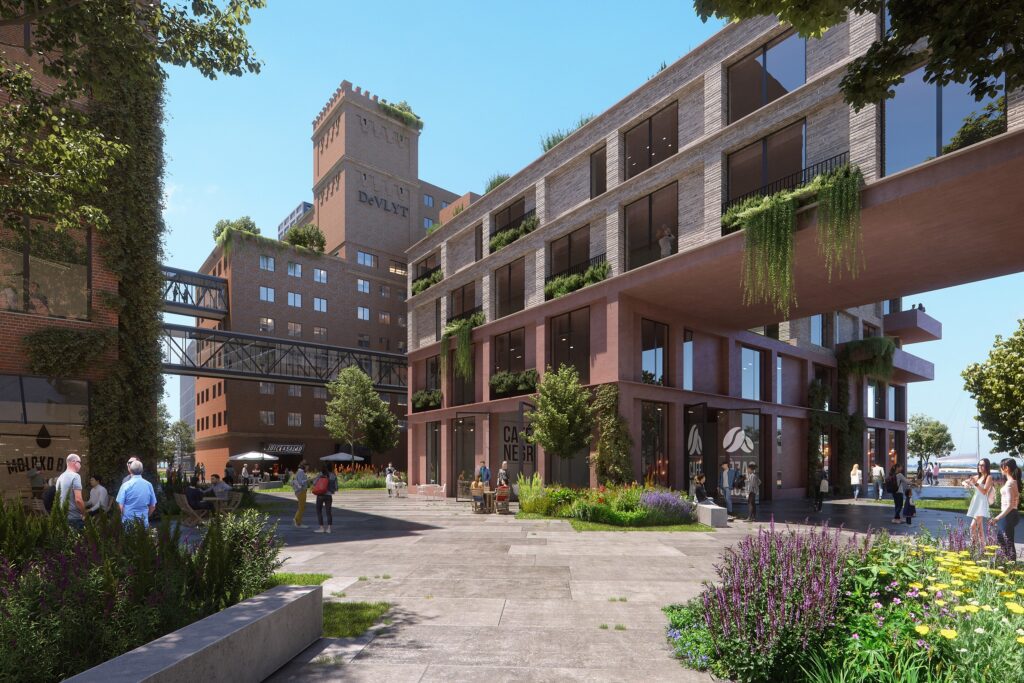Deutsche Finance International (“DFI”), the pan-European private equity real estate investor which manages over €2.4bn of assets and specialises in customer-centric real estate, has acquired a major c. €200 millionresidential-led development project that will see the creation of a new mixed-use district, which includes the preservation and recycling of the historic elements of a 19th Century flour mill in the Amsterdam suburb of Zaanstad-Wormerveer.
The off-market transaction was undertaken on behalf of DFI’s inaugural fund, DFI European Value-Add Fund (“DFI EVAF” or the “Fund”) and marks the company’s first investment in the Dutch market. DFI is the majority investor in a joint venture (the “JV”) with local development manager, Waterland Real Estate, and developer contractor Van Wijnen, one of the largest residential construction companies in the Netherlands.
Formerly the Meneba flour mill factory, the 4.6 hectare (11.4 acre) 100-year-old industrial site was purchased for the development of 600+ residential units, including Build to Rent and for sale homes as well as ancillary commercial uses. The investment will therefore transform the underutilised area into a new mixed-use district to be enjoyed by both current and future generations of residents.
The business plan assumes partly retaining and refurbishing the heritage components of the old factory, while inserting modern accommodation to complement these buildings. It will also incorporate new outside spaces and public realm for both residents and the local community. In addition, the buildings will feature state-of-the-art design and technology (including solar / PV panels, green roofs and façades, heat & cold storage, etc.) to make sustainable living and working possible.
Zaanstad-Wormerveer benefits from excellent transport connectivity being just 20 minutes by road or rail from Amsterdam city centre and adjacent to the A7 motorway. The proposed scheme will benefit from its strong micro-location (close to local shops, amenities and schools) while providing much needed mid-market and affordable housing for the local population.
By establishing the JV alongside partners with an in-depth knowledge of the Dutch residential market, DFI will look to capitalise on the growing housing deficit, which by the end of 2019 reached a shortfall of 315,000 units, representing 4.0% of total housing stock in the Netherlands. The main focus will be on the mid-market segment in cities within the Randstad region and locations which benefit from strong transport links into these cities.
Source : DFI
 Le mie ricette per la real estate community
Le mie ricette per la real estate community
